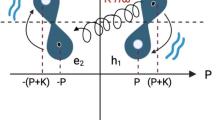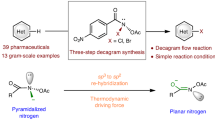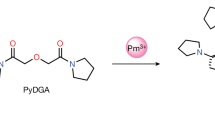Abstract
NUCLEIC acids consist of nucleotides linked together by ester linkages between the phosphate group of one and the ribose group of another nucleotide as shown below: 
This is a preview of subscription content, access via your institution
Access options
Subscribe to this journal
Receive 51 print issues and online access
$199.00 per year
only $3.90 per issue
Buy this article
- Purchase on Springer Link
- Instant access to full article PDF
Prices may be subject to local taxes which are calculated during checkout
Similar content being viewed by others
References
Chargaff, E., Magasanik, R., and Vischer, E. ; Green, C., Doniger, R., and Elson, D., J. Biol. Chem., 186, 51 (1950).
Hotchkiss, R. D., J. Biol. Chem., 175, 315 (1948).
Markham, R., and Smith, J. D., Biochem. J., 49, 401 (1951).
Markham, R., and Smith, J. D., Nature, 163, 250 (1949).
Author information
Authors and Affiliations
Rights and permissions
About this article
Cite this article
NARURKAR, M., SAHASRABUDHE, M. A New Method for ‘Hydrolysis’ of Nucleic Acids with Phosphorus Pentoxide. Nature 176, 883–884 (1955). https://doi.org/10.1038/176883a0
Issue Date:
DOI: https://doi.org/10.1038/176883a0
Comments
By submitting a comment you agree to abide by our Terms and Community Guidelines. If you find something abusive or that does not comply with our terms or guidelines please flag it as inappropriate.



